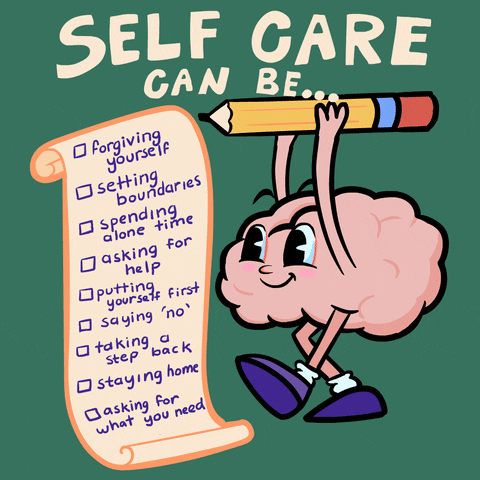What does the Bible say about mental health?

God created us with a body and soul—with our own mind, will, and emotions. Today, the phrase "mental health" is often used to describe the state of our hearts and minds. While the Bible never uses the term "mental health," it quite often speaks about caring for ourselves mentally, emotionally, and spiritually and how the state of our hearts and minds is of utmost importance to God.
Why Our Mental Health Suffers
The core reason people suffer is because of the curse of sin in this world. When Adam and Eve sinned, they invited darkness into God's perfect world, resulting in brokenness for every aspect of life, relationships, and existence—including spiritual death in our relationship with God (Genesis 3; Isaiah 59:2).
Because of sin, our world is imperfect, and good mental and physical health is not guaranteed. The mind, just like the body, can get sick, injured, and suffer pain. One day, there will be no more crying, sickness, or pain (Revelation 21:4). Complete healing will be given to every part of us in Heaven. If you have accepted the gift of salvation through Jesus, believing in Him as your Savior from sin, take heart—because one day all mental and physical suffering will end. You will be in God's perfect home, completely restored to the state God created us to be in the beginning.
Until then, we need to take gentle care of ourselves, trusting that God is near to those who are crushed in spirit (Psalm 34:18). Self-care—physical, emotional, and spiritual—is important. We can call on God for support and strength (Philippians 4:6-7; 1 Peter 5:7; Philippians 4:13), and we can turn to our support system for encouragement (Ecclesiastes 4:9-12).
"Come to me, all who labor and are heavy laden, and I will give you rest. Take my yoke upon you, and learn from me, for I am gentle and lowly in heart, and you will find rest for your souls. For my yoke is easy, and my burden is light." —Matthew 11:28-30
We Do Not Suffer for Nothing
Mental health struggles, while difficult and frustrating, are not pointless. God works out all things for the good of His children (Romans 8:28). God is the One who renews our minds (Romans 12:2) and restores our souls (Psalm 23:2). Sometimes it's our own sin that needs to be dealt with. Sometimes it's the sin of someone else that has caused our pain or trauma. God can help us learn so much from both situations.
Even for those who continue to suffer throughout their lives, such as the apostle Paul (2 Corinthians 12:7-10), we find evidence that God has used their experiences to bring higher understanding and maturity to others and glory to Himself.
"Count it all joy, my brothers, when you meet trials of various kinds, for you know that the testing of your faith produces steadfastness. And let steadfastness have its full effect, that you may be perfect and complete, lacking in nothing." —James 1:2-4
Scripture's Stories of Mental Health
The Bible has many examples of people struggling with their mental health and how God cared for them, providing for their needs—both physical and emotional.
Elijah

After the prophet Elijah had an intense, traumatizing encounter with Queen Jezebel (1 Kings 18) and was threatened with murder (1 Kings 19:2), he fled to a place by himself where he begged the Lord to take his life (1 Kings 19:3-4). God responded by caring for his physical needs by giving him time to sleep and eat as much as he needed to (1 Kings 19:5-9). After he was rested physically, God provided for him spiritually by giving him encouragement, a new purpose, and an assistant (1 Kings 19:15-18).
Elijah's story tells us that it's OK to break down and cry to the Lord. We all might reach our breaking point at some time, and who should we turn to? God recognizes when life is too much, and He wants to hear from you and restore you. Romans 8:6 says that "to set the mind on the flesh is death, but to set the mind on the Spirit is life and peace."
Jonah
The prophet Jonah fell into a deep depression and suicidal ideation after his own bad choices took him way off God's path for him (Jonah 4:3). Jonah had rebelled against God's direction to preach to the city of Nineveh because of his own classism. Instead of following God's command, Jonah tried to run away from the Lord. This futile escape landed him in a boat being tossed by a powerful storm sent by God. Jonah was in such despair that he demanded the crew throw him overboard to save themselves (Jonah 1:12).
God caused a giant sea creature to swallow Jonah and keep him from drowning (Jonah 1:17). From inside the animal, Jonah prayed, humbling himself before the Lord, and God spared His life (Jonah 2). At last, Jonah went to Ninevah and delivered God's message, though his heart wasn't in it.
When the Ninevites repented of their sin and turned to God, the Lord spared their city from destruction (Jonah 3). Jonah was full of anger and bitterness, because he didn't think Ninevah deserved to be spared. God stayed with him, cared for him, and taught him—even as Jonah sat on a cliff and felt sorry for himself (Jonah 4).

Jonah's story tells us that God is still with us in our negative feelings and self-pity—in our obedience AND our disobedience. He doesn't allow our disobedience to interrupt His work, nor does He leave us to suffer alone in the consequences of our actions. But unlike Jonah, we ought to work toward leaving our pity party, aligning our heart and values with God's. When we turn our focus upward (to God) and outward (to others), we can take away the power of inner darkness.
"So we do not lose heart. Though our outer self is wasting away, our inner self is being renewed day by day." —2 Corinthians 4:16
Spiritual Warfare
Sometimes, mental health struggles are a result of spiritual warfare (Ephesians 6:11-12). King Saul suffered distress from an evil spirit (1 Samuel 16:14). After Jesus cast out demons from people suffering mental illness, they were restored to their "right mind" and found peace from destructive behaviors and tormented thoughts (Mark 5:1-20).
So, some of our struggles may not be due to "flesh and blood" reasons, but rather due to the powers and forces of evil working to sabotage our lives and our work for God's Kingdom. To protect ourselves from spiritual warfare and prepare for battle, we need to put on the armor of God.
"For we do not wrestle against flesh and blood, but against the rulers, against the authorities, against the cosmic powers over this present darkness, against the spiritual forces of evil in the heavenly places. Therefore take up the whole armor of God, that you may be able to withstand in the evil day, and having done all, to stand firm." —Ephesians 6:12-13
Practical Ways to Care for Your Mental Health
God is with us and will help us, and we can be a part of maintaining a healthy mind by being proactive. Just as we put on the armor of God to prepare for spiritual attacks, we can prepare our minds for optimal health by:

- Actively seeking peace (Romans 12:18; Proverbs 14:30)
- Protecting our minds from harmful input (Philippians 4:8; Matthew 7:15)
- Being honest with yourself (Psalms 15:2)
- Forgiving others—and yourself—when mistakes have been made (Ephesians 4:32)
- Trusting God with our worries and anxieties (Philippians 4:6)
- Having healthy boundaries in relationships (Psalm 34:14; Proverbs 17:22; Proverbs 13:20)
- Choosing our close friends wisely (1 Peter 4:8-10; Proverbs 18:24; Proverbs 22:24-25)
- Caring for your physical body (i.e. eating, resting, moving) as much as you're able (1 Corinthians 6:19-20)
- Taking time away from busyness and connecting with God (Luke 5:16; Mark 6:31)
- Talking to Jesus because He knows what we're feeling and understands the human condition (Hebrews 4:15)
- Choosing healthy, beneficial activities that bring spiritual joy (Proverbs 3:7-8; 1 Corinthians 10:31)
- Seeking help from God and others when we're struggling (Philippians 4:6-7; Ecclesiastes 4:9-12)
- Memorizing verses that say "fear not" because God is with you (Psalms 23:3; Matthew 11:28; Isaiah 41:10; 1 Peter 5:7)
There are plenty more ways to protect your mental health than these, of course.
David experienced many things that caused him to be depressed and "soul heavy." He responded by pouring his heart out to God through prayer and song. (That's why we have many Psalms!) Through his creativity, David grounded himself on who God is and what God had done. If you have creative interests, pursuing those may help bring light into your mind once again.
Prayer is one the best things we can do; God would love for you to share your thoughts and concerns with Him (1 Peter 5:7). Romans 8:26 reminds us that the Holy Spirit will pray for us when our suffering is too great to form words for God.

Reading, memorizing, and mediating on God's Word helps us build the truth into our hearts and minds, increasing the likelihood that we dwell on God's thoughts rather than repeating the empty mantras and beliefs of the world.
Romans 12:2 calls this "renewing your mind." We take in a lot of information every day—whether from school, social media, friends, etc. Some of the things we hear are truth and others are lies. Since our thoughts have a direct impact on our feelings and actions, we need to examine and evaluate what comes into our minds, instead of believing everything we hear (2 Corinthians 10:5).
When we "renew" our minds with truth, we're actively choosing to fill our minds with the things of God, His principles, His morals, His ways—and actively reject the lies of the enemy. Then our thoughts, feelings, and actions will be based on truth alone.
In the Moment...
"Do not be anxious about anything, but in everything by prayer and supplication with thanksgiving let your requests be made known to God. And the peace of God, which surpasses all understanding, will guard your hearts and your minds in Christ Jesus." —Philippians 4:6-7
When your mental health is suffering, sometimes it feels like the easy answer is to burrow deep into the pain. But we do not need to lose hope. God is always with us—no matter how dark it gets (Psalm 23). And God cares about you immensely—no matter how unloved or worthless you feel (Matthew 6:25-34). Raise your eyes and find Him. Even when Jesus was weary, He was intentional about seeking out God the Father in prayer to be strengthened and refreshed (John 17:1-26).
The mental anguish that people suffer (including anxiety, depression, and fear) are real struggles and emotions that can affect your whole being (Proverbs 4:23). Sometimes medication or doctors can help treat the physical needs attached to mental health. And along with that, we must not forget that we have souls, so there is a spiritual aspect as well. A close relationship with God and wisdom from a Christian counselor can make all the difference.
God's Word is the ultimate source of truth when it comes to treating the inner heart. "Speaking God's truth to our hearts does not make the pain go away, but it does make us draw near to Jesus, the only one that can provide hope, comfort, and healing in the midst of the pain."
RESOURCES: 1. Speak Truth in Your Heart. Mally, Sarah. Tomorrow's Forefathers, Inc., 4 April 2018.
ALSO SEE:
- What does the Bible say about mental illness?
- Should a Christian take mental health meds?
- Should a Christian see a psychologist, psychiatrist, or counselor?
- How do I choose a good Christian counselor?
- How to Do a Mental Health Check
- Are coping mechanisms sinful?
- What does the Bible say about forgiving yourself?
- What does the Bible say about depression?
- How can I overcome anxiety?
- What does the Bible say about panic attacks?
- What is gaslighting?
- What is the full armor of God?
- How should a Christian deal with Seasonal Affective Disorder?
- What are the signs of suicidal ideation?
- What does the Bible say about dealing with toxic relationships?
- How can I honor an abusive parent?
- What does the Bible say about recovering from PTSD?
- What are spiritual boundaries?
- What are signs of an eating disorder?
- What is spiritual abuse?
- What are some signs of spiritual abuse?


TL;DR
While the term "mental health" is not in the Bible, there are many principles and examples about caring for our soul, mind, and heart. For example, Philippians 4:6-8 says that instead of being anxious we should first give thanks, then present our requests to God, and then dwell on things that are lovely, excellent and worthy of praise. The prophet Elijah is an example of how God cared for his physical, mental, and spiritual health—as all are important. The Bible advises us to "renew" our minds with God's Word (Romans 12:2), taking our thoughts captive (2 Corinthians 10:5), and seeking God to heal and comfort our hearts (Psalms).

Writer: Hanna S.
Hanna loves spending time with kids and teens. She enjoys being detectives with them to investigate God's Word to discover truths to answer any questions. She is the co-author of a newly published apologetics curriculum for children and teaches one online for highschoolers-adults. To learn more about her ministry you can visit networkerstec.com. For fun, she likes to play Ultimate Frisbee, read historical fiction, and paint.
